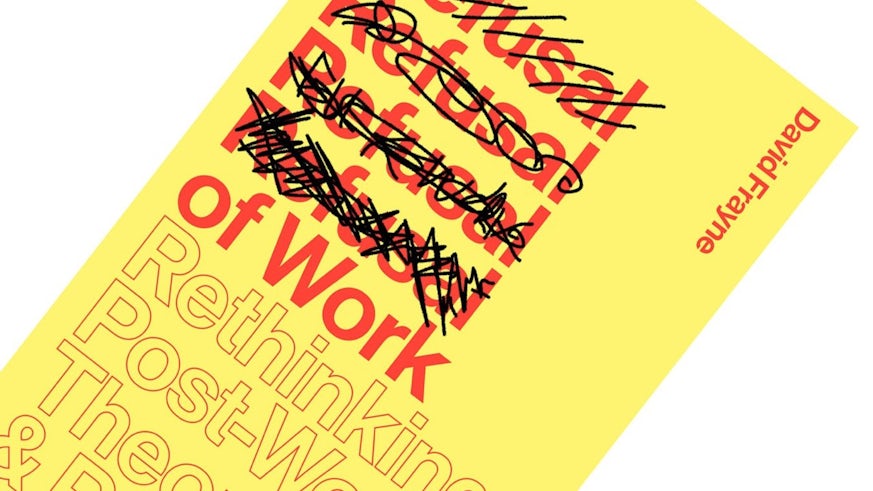The Refusal of Work
13 January 2016

Paid work is absolutely central to the culture and politics of capitalist societies. Some people work too much, others find themselves unemployed or underemployed, but all are part of a society increasingly dominated by a focus on employment. Work is a taken-for-granted feature of everyday life – but are there alternative approaches to life under capitalism?
A new book by Dr David Frayne, Lecturer at the School of Social Sciences, argues that the time has come to challenge the work-centred nature of modern society. The Refusal of Work: The Theory and Practice of Resistance to Work explores the motivations of those who resist the working world and questions the central place of work in mainstream political visions of the future.
Published in late 2015, the book has already been attracting attention. Tess Riley, deputy editor of Guardian Sustainable Business, chose it this week as one of her six ‘must-read books’ of 2016. The Financial Times also called the book ‘liberating and a worthy provocation’.
Dr Frayne said: “It really comes down to the fundamental philosophical question of what it means to live a good life. Economic growth does not necessarily equal life satisfaction and, in this age of material abundance, there is a troubling disparity between our desire for a good life and capitalism’s focus on the constant expansion of production and consumption. Work has come to dominate our everyday lives but what most people actually crave is more free-time and greater investment in the social aspects of life.
“A growing awareness of these facts has, however, done very little to upset the mainstream political agenda. Paid jobs continue to be promoted as a vital source of good health and character, the media continues obsessively to demonise the non-working ‘scrounger’, and an old-fashioned work ethic maintains its anchorage in policies designed to force people off welfare and into employment.”
Dr Frayne carried out substantial empirical research into the lives of people who are actively resisting employment – either by reducing their work hours to the minimum or by giving up work altogether. The book explores the reasons that people disconnect from work, the strategies they develop for coping with not working in a society that demands work, and what they do with their free time.
Dr Frayne said: “This is definitely not another one of those sugary books that tells its readers they can lead richer and freer lives by doing more of x and less of y. There is no implication that the people I met had discovered a key to happiness. What the discussions represent is an attempt to remain open to alternatives, and to generate ideas that might contribute positively to a critique of our work-centred society. “
The Refusal of Work: The Theory and Practice of Resistance to Work is published by Zed Books.
Find Dr Frayne on Twitter: @theworkdogma